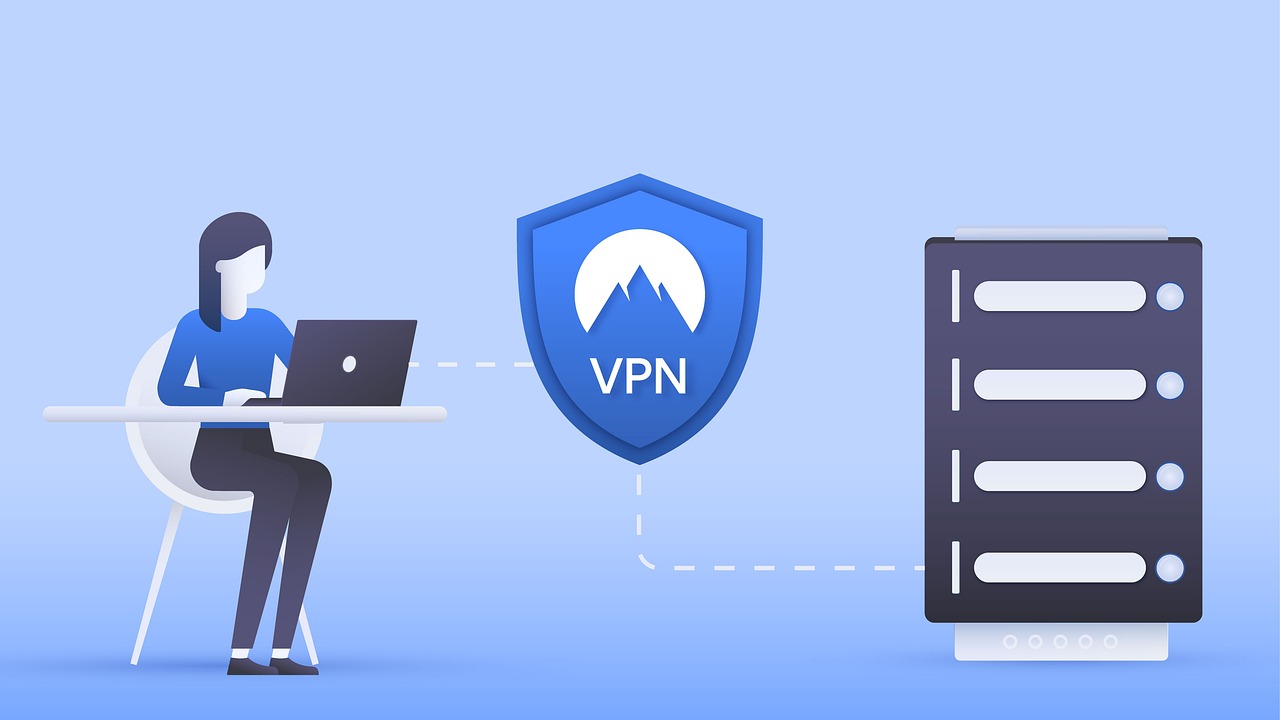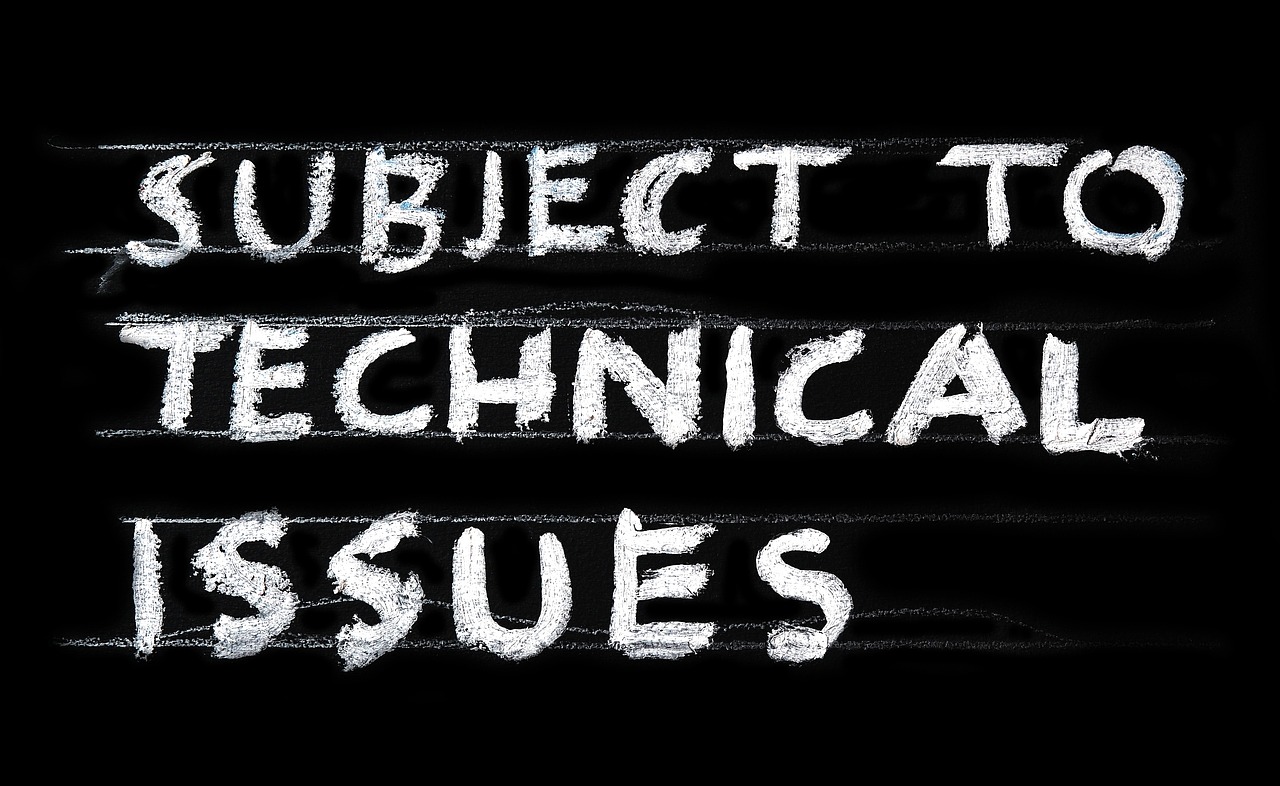The Ethics of Hacking - The Good, Bad and Ugly
The world of hacking is a double-edged sword, wielding the potential for both incredible innovation and devastating consequences. As technology continues to evolve at breakneck speed, the ethical landscape of hacking becomes increasingly complex. On one hand, we have ethical hackers who work diligently to expose vulnerabilities and enhance cybersecurity. On the other hand, there are malicious hackers whose actions can lead to severe repercussions for individuals and organizations alike. This article aims to explore the multifaceted nature of hacking ethics, diving deep into its positive, negative, and controversial aspects, while shedding light on the motivations and implications behind various hacking activities.
Believe it or not, hacking can actually serve a beneficial purpose in our society. Ethical hackers, often referred to as white hats, play a pivotal role in enhancing cybersecurity measures. They identify vulnerabilities in systems before malicious hackers can exploit them, acting as the first line of defense against cyber threats. These heroes of the digital age not only help organizations protect sensitive data but also promote transparency by exposing flaws in security protocols. In a world where data breaches are becoming more common, the work of ethical hackers is invaluable.
Moreover, hacking can foster innovation. Think about it: many of the technologies we rely on today emerged from the creative solutions hackers devised to overcome challenges. By pushing the boundaries of what’s possible, ethical hackers drive progress and inspire new ideas that can lead to safer, more efficient systems. So, the next time you hear about a hacker, remember that not all of them are out to cause harm; some are here to help.
However, not all hacking is ethical, and the dark side can be quite grim. Malicious hackers, or black hats, engage in activities that can lead to devastating consequences, such as data breaches, identity theft, and significant financial losses. These actions can have a ripple effect, impacting not just the immediate victims but also the broader community. Imagine waking up one day to find your personal information stolen and used for fraudulent purposes; it’s a nightmare that many have faced due to the unethical practices of hackers.
Cybercrime encompasses a wide range of illegal activities conducted online, and its implications for society are severe. From phishing scams to ransomware attacks, the spectrum of cybercrime is vast and continuously evolving. Victims often suffer not only financial losses but also emotional distress, as the violation of personal security can leave lasting scars. The consequences extend beyond individuals; companies can face reputational damage, loss of customer trust, and hefty fines. The reality is that cybercrime is a growing epidemic, and combating it requires a collective effort from ethical hackers, law enforcement, and the community.
One of the primary motivations for many hackers is financial gain. These individuals exploit vulnerabilities in systems purely for personal enrichment, often leading to devastating impacts on businesses and individuals alike. The lucrative nature of cybercrime has created a thriving underground economy, where stolen data can be sold for a hefty price. The consequences of such actions can be far-reaching, affecting everything from a company's bottom line to the livelihoods of its employees.
On a different note, we have hacktivism, where hacking intersects with political activism. Hacktivists aim to promote social change through their digital actions, often targeting organizations or governments they perceive as unethical. While their intentions may be noble, the ethical dilemmas they face are significant. Are they justified in breaking the law to advocate for a cause? This question sparks heated debates and highlights the complex nature of hacking ethics in the modern age.
In the midst of this chaos, ethical hackers emerge as crucial players in safeguarding systems and networks. They employ a variety of tools and methodologies to protect against malicious threats, acting as guardians of the digital realm. Their responsibilities include conducting penetration tests, assessing security protocols, and providing recommendations for improvement. Ethical hackers not only help organizations fortify their defenses but also contribute to a culture of security awareness that benefits everyone.
The legal landscape surrounding hacking is as complex as the ethical dilemmas it presents. Different jurisdictions have varying laws regarding hacking, making it challenging to navigate the legal frameworks that govern these activities. Understanding these laws is essential for both hackers and organizations to avoid crossing ethical lines.
Key cybersecurity laws and regulations play a significant role in shaping hacking practices. Familiarity with these laws is crucial for ethical hackers who want to operate within legal boundaries while still contributing to cybersecurity efforts. Some of the notable laws include the Computer Fraud and Abuse Act (CFAA) in the United States and the General Data Protection Regulation (GDPR) in Europe, which impose strict guidelines on data protection and privacy.
Malicious hacking can lead to severe legal repercussions, including hefty fines and imprisonment. Notable cases have shown that cybercriminals are often caught and prosecuted, serving as a warning to others who might consider engaging in such activities. The legal consequences highlight the importance of adhering to ethical standards in the hacking community.
- What is ethical hacking? Ethical hacking refers to the practice of intentionally probing systems for vulnerabilities with the permission of the owner, aimed at improving security.
- What are the types of hackers? Hackers are generally categorized into three types: white hats (ethical hackers), black hats (malicious hackers), and grey hats (those who may violate ethical standards but do not have malicious intent).
- Is hacking illegal? Hacking can be illegal or legal, depending on the intent and whether the hacker has permission to access the system.
- What are the consequences of hacking? Consequences can include legal action, fines, imprisonment, and damage to personal and organizational reputation.

The Positive Side of Hacking
When we think of hacking, the first images that often come to mind are those of shadowy figures sitting in dark rooms, typing furiously away at their keyboards. However, this stereotype overlooks the positive contributions that hacking can make to society. In fact, hacking isn't inherently bad—it's all about the intent behind it. Ethical hackers, often known as "white hats," use their skills to enhance cybersecurity, promote transparency, and identify vulnerabilities in systems before malicious hackers can exploit them.
One of the most significant benefits of hacking is its role in strengthening cybersecurity. Ethical hackers simulate attacks on systems to uncover weaknesses that could be exploited by cybercriminals. By doing so, they help organizations fortify their defenses, ensuring that sensitive data remains protected. This proactive approach is akin to a fire drill—it prepares organizations for potential disasters before they actually occur. The cost of a data breach can be astronomical, not just in terms of finances but also in lost trust and reputation. Thus, investing in ethical hacking can save companies from devastating consequences.
Moreover, hacking promotes transparency in various sectors, including government and corporate environments. For instance, hacktivists—who blend hacking with activism—often expose corruption and unethical practices through their actions. While their methods can be controversial, the information they reveal can lead to significant societal change. This mirrors the role of a whistleblower, shining a light on issues that may otherwise remain hidden in the shadows.
Another crucial aspect of hacking is its contribution to education and awareness. Many ethical hackers participate in community outreach programs, workshops, and conferences where they share their knowledge and skills with others. This helps raise awareness about cybersecurity threats and teaches individuals how to protect themselves online. Just like a good teacher inspires students to learn, ethical hackers empower people to understand the importance of cybersecurity in our increasingly digital world.
In addition, ethical hacking plays a vital role in the development of new technologies and security measures. By identifying potential vulnerabilities, ethical hackers provide invaluable feedback to developers, enabling them to create more secure software and systems. This collaborative effort leads to innovations that can enhance our everyday lives, from online banking to social media platforms. It's a continuous cycle of improvement, much like a feedback loop that drives progress.
In conclusion, while hacking often carries a negative connotation, it is essential to recognize the positive side of this multifaceted practice. Ethical hackers are not just tech-savvy individuals; they are guardians of the digital realm, working tirelessly to protect us from the threats that lurk online. By understanding the constructive aspects of hacking, we can begin to appreciate its role in fostering a safer, more transparent, and technologically advanced society.

The Dark Side of Hacking
While hacking can have its positive aspects, it’s essential to acknowledge the dark side that lurks beneath the surface. Not all hackers have altruistic intentions; many engage in malicious activities that can have devastating effects on individuals and organizations alike. The term "hacking" often conjures images of computer screens filled with code, but for some, it represents a gateway to chaos and destruction. From data breaches to identity theft, the consequences of unethical hacking are far-reaching and can lead to significant financial and emotional distress.
One of the most alarming facets of this dark side is the rise of cybercrime. This encompasses a broad spectrum of illegal activities conducted online, and its prevalence is growing at an alarming rate. Cybercriminals exploit vulnerabilities in systems and networks, often leaving a trail of destruction in their wake. The impacts of these crimes can be severe, ranging from loss of sensitive data to complete financial ruin. In fact, a recent study estimated that cybercrime costs the global economy over $1 trillion annually. This staggering figure highlights the urgent need for heightened cybersecurity measures.
Cybercrime can take many forms, each with its own set of consequences. Here are a few common types:
- Data Breaches: Unauthorized access to sensitive information, often leading to identity theft and financial loss.
- Phishing Attacks: Deceptive tactics used to trick individuals into revealing personal information, such as passwords or credit card numbers.
- Ransomware: Malicious software that locks users out of their systems until a ransom is paid, often crippling businesses and organizations.
The emotional toll on victims of cybercrime can be just as damaging as the financial repercussions. Imagine waking up to find that your personal information has been compromised, your bank account drained, or your identity stolen. The feeling of vulnerability and helplessness can be overwhelming, leading to anxiety and distrust. This is why understanding the motivations behind malicious hacking is crucial.
Many hackers operate with the primary goal of financial gain. These individuals, often referred to as black hat hackers, exploit vulnerabilities in systems not just for the thrill, but to line their pockets. They may sell stolen data on the dark web, deploy ransomware attacks, or engage in credit card fraud. The allure of quick cash can be irresistible, leading some to cross ethical lines without a second thought. The consequences for victims can be catastrophic, resulting in lost savings, damaged credit scores, and extensive recovery efforts.
On the flip side, we also have hacktivism, where hacking is used as a form of political activism. While some may view hacktivists as modern-day Robin Hoods, their actions often blur the lines of legality and ethics. They aim to promote social change, but their methods can lead to unintended consequences. For instance, disrupting a government website may raise awareness for a cause but can also hinder essential services and alienate potential supporters. The ethical dilemmas faced by hacktivists are complex, as they navigate the fine line between activism and cybercrime.
In conclusion, the dark side of hacking is a multifaceted issue that poses significant risks to society. Whether it’s through cybercrime for profit or politically motivated hacktivism, the implications of these actions can be devastating. As we continue to embrace technology, understanding the ethical considerations surrounding hacking becomes increasingly vital. It’s a digital jungle out there, and being aware of the dangers is the first step toward protecting ourselves and our communities.
Q1: What is the difference between ethical hacking and malicious hacking?
A1: Ethical hacking is performed by individuals who help organizations identify and fix vulnerabilities, while malicious hacking is done with harmful intent, often for financial gain or to cause disruption.
Q2: Can hacktivism be considered a form of cybercrime?
A2: Yes, while hacktivists may have noble intentions, their actions often violate laws and can be classified as cybercrime, especially if they disrupt services or compromise data.
Q3: What can individuals do to protect themselves from cybercrime?
A3: Individuals can enhance their cybersecurity by using strong passwords, enabling two-factor authentication, and being cautious with personal information online.

Cybercrime is a term that encompasses a wide range of illegal activities conducted online, and its implications can be as far-reaching as they are alarming. Imagine waking up one day to find that your personal information has been stolen, your bank account drained, or your identity hijacked. The emotional and financial toll of such events can be devastating, making it crucial to understand the various forms of cybercrime and their consequences.
At its core, cybercrime can be categorized into several types, each with its unique methods and impacts. For instance, identity theft is one of the most insidious forms of cybercrime, where criminals steal personal information to impersonate someone else. This can lead to significant financial losses and a lengthy process of reclaiming one's identity. Another prevalent form is phishing, where attackers deceive individuals into providing sensitive information through fake emails or websites. This can result in unauthorized access to bank accounts and sensitive data.
Moreover, ransomware attacks have skyrocketed in recent years, where hackers encrypt a victim's files and demand a ransom for their release. Not only does this disrupt personal and business operations, but it can also lead to hefty financial losses. According to recent statistics, the global cost of ransomware attacks is projected to reach billions of dollars annually, illustrating the scale of this growing threat.
In addition to the financial implications, the psychological effects of cybercrime cannot be overlooked. Victims often experience feelings of violation, anxiety, and helplessness. The aftermath of such crimes can lead to a loss of trust in technology and online platforms, which is particularly concerning in our increasingly digital world.
To better illustrate the various forms of cybercrime and their consequences, here’s a table outlining some common types:
| Type of Cybercrime | Description | Consequences |
|---|---|---|
| Identity Theft | Stealing personal information to impersonate someone. | Financial loss, emotional distress, long recovery process. |
| Phishing | Deceptive attempts to obtain sensitive information. | Unauthorized access to accounts, data breaches. |
| Ransomware | Encrypting files and demanding ransom for decryption. | Operational disruption, significant financial loss. |
| Cyberbullying | Using digital platforms to harass or intimidate. | Emotional distress, potential suicide in severe cases. |
As we delve deeper into the realm of cybercrime, it's essential to recognize that the consequences extend beyond individual victims. Organizations, too, face significant risks. Data breaches can lead to loss of customer trust, legal ramifications, and financial penalties. In fact, a single data breach can cost a company millions, not just in immediate losses but also in long-term reputational damage.
In conclusion, understanding cybercrime and its consequences is vital in today’s digital age. By raising awareness about these threats, we can better equip ourselves to protect our personal information and advocate for stronger cybersecurity measures. Remember, the more informed we are, the better prepared we will be to thwart potential cybercriminals.
- What is cybercrime? Cybercrime refers to illegal activities conducted via the internet, which can include identity theft, hacking, and online fraud.
- How can I protect myself from cybercrime? Use strong passwords, enable two-factor authentication, and be cautious about sharing personal information online.
- What should I do if I become a victim of cybercrime? Report the incident to local authorities, monitor your accounts closely, and consider identity theft protection services.

In the vast digital landscape, hacking for profit has emerged as a significant concern. While the term "hacking" often conjures images of rogue individuals cloaked in shadows, the reality is far more complex and multifaceted. Many hackers are not just looking to showcase their skills or make a political statement; instead, they are motivated by the allure of financial gain. This profit-driven hacking can take various forms, from stealing sensitive data to deploying ransomware, and it poses a serious threat to individuals and organizations alike.
One of the most common methods hackers use to make money is through data breaches. In these scenarios, hackers infiltrate a company’s database and extract sensitive information, such as credit card numbers, social security numbers, and personal identification details. Once they have this information, they can sell it on the dark web for a hefty price. According to recent studies, the average cost of a data breach for companies can reach into the millions, making the stakes incredibly high.
Another prevalent method is ransomware attacks. Here, hackers encrypt a victim's data and demand a ransom—usually in cryptocurrency—before they will provide the decryption key. This type of attack has seen a dramatic rise in recent years, with high-profile cases making headlines and causing significant disruptions to businesses. For instance, the Colonial Pipeline attack in 2021 resulted in a ransom payment of $4.4 million, showcasing just how lucrative this malicious activity can be.
It's also worth noting that some hackers operate in what could be described as a "gray area." They may engage in penetration testing—a practice where they exploit vulnerabilities in systems to identify weaknesses—but do so without proper authorization. While this may not be outright illegal, it raises ethical questions about consent and accountability. The line between ethical hacking and malicious hacking can sometimes blur, leading to confusion about what is acceptable and what isn't.
To understand the implications of hacking for profit, we must recognize the motivations behind these actions. Hackers often justify their activities by claiming they are merely exploiting flaws in a system that should have been secured better. However, the reality is that their actions can lead to devastating consequences for victims, including financial loss, reputational damage, and emotional distress. The impact of these crimes can ripple through society, affecting not just the immediate victims but also the broader community.
In conclusion, hacking for profit is a pressing issue that demands attention. As technology continues to evolve, so too do the tactics employed by cybercriminals. It's crucial for individuals and organizations to remain vigilant, investing in robust cybersecurity measures to protect against these threats. The digital world is a double-edged sword; while it offers immense opportunities, it also presents significant risks that can have far-reaching consequences.
- What is hacking for profit? Hacking for profit refers to illegal activities conducted by hackers aimed at financial gain, such as stealing data or deploying ransomware.
- How do hackers make money? Hackers can make money through various methods, including data breaches, ransomware attacks, and selling stolen information on the dark web.
- Is all hacking illegal? Not all hacking is illegal; ethical hacking is conducted with permission to identify vulnerabilities and improve security.
- What are the consequences of hacking for profit? Consequences can include legal repercussions for the hacker, financial losses for victims, and damage to an organization's reputation.

In the digital age, the term hacktivism has emerged as a powerful blend of hacking and activism, where individuals or groups utilize their technical skills to promote social or political causes. This form of activism is not merely about breaking into systems; it’s about sending a message, raising awareness, and sometimes even challenging the status quo. Think of it as a digital protest—much like how activists take to the streets to rally for change, hacktivists take to the web to make their voices heard. But what drives these individuals to engage in such risky behaviors?
One of the primary motivations behind hacktivism is a strong belief in social justice. Hacktivists often target organizations or governments that they perceive as corrupt or unjust. For example, during the Arab Spring, various groups used hacking to expose government corruption and mobilize citizens. Their actions, while illegal, were seen as necessary to promote transparency and accountability.
However, the ethical implications of hacktivism are complex. While some view hacktivists as modern-day Robin Hoods, others argue that their methods can undermine legitimate social movements. For instance, a hacktivist group may deface a government website to protest against oppressive laws. While this act may raise awareness, it could also alienate potential supporters who disagree with their tactics. The line between right and wrong becomes blurred, prompting us to ask: is it ever justifiable to break the law for a greater good?
Moreover, hacktivism raises questions about freedom of speech and the boundaries of activism. In some cases, hacktivists have been prosecuted for their actions, sparking debates over whether their activities should be protected under free speech laws. This ongoing tension between activism and legality highlights the need for a nuanced understanding of both hacking and activism.
To better understand the impact of hacktivism, let’s take a look at some notable examples:
| Hacktivist Group | Notable Actions | Impact |
|---|---|---|
| Anonymous | Attacks on the Church of Scientology | Increased public awareness about the organization’s practices |
| WikiLeaks | Publishing classified documents | Exposed government secrets, igniting global debates on transparency |
| Occupy Wall Street | Website defacements | Highlighted inequality and corporate greed |
In conclusion, hacktivism serves as a double-edged sword. On one side, it can catalyze change and shine a spotlight on pressing issues. On the other, it can lead to unintended consequences that hinder the very causes it aims to support. As society continues to grapple with digital rights and freedoms, the role of hacktivism will likely remain a contentious topic. Understanding the motivations and implications behind these actions is crucial as we navigate the complex landscape of modern activism.
- What is hacktivism? Hacktivism is the combination of hacking and activism, where individuals use their technical skills to promote social or political causes.
- Is hacktivism legal? The legality of hacktivism varies by jurisdiction and often depends on the methods used and the intent behind the actions.
- What are some famous hacktivist groups? Notable hacktivist groups include Anonymous and WikiLeaks, known for their high-profile actions aimed at promoting transparency and social justice.
- Can hacktivism be effective? Yes, hacktivism can raise awareness and promote social change, but it can also alienate potential supporters if perceived as too extreme.

In today's digital age, where our lives are intertwined with technology, ethical hackers serve as the knights in shining armor of the cybersecurity realm. These individuals, often referred to as "white hat" hackers, utilize their skills to protect systems, networks, and data from malicious threats. But what exactly do they do, and why are they so vital in the ongoing battle against cybercrime?
Ethical hackers are not just tech-savvy individuals; they are trained professionals who employ a variety of tools and methodologies to identify vulnerabilities before they can be exploited by malicious hackers. Their work is akin to a security consultant who thoroughly examines a building for potential weaknesses. By simulating attacks, they can pinpoint security flaws and recommend fixes, ultimately fortifying the defenses of the organization.
One of the primary responsibilities of ethical hackers is conducting penetration testing. This involves a controlled and authorized attempt to breach a system's defenses, allowing organizations to understand their security posture. Think of it as a fire drill, where the goal is to expose weaknesses in a safe environment before a real fire occurs. The insights gained from these tests are invaluable, often leading to improved security protocols and practices.
In addition to penetration testing, ethical hackers also engage in vulnerability assessments. This process involves scanning systems for known vulnerabilities and providing detailed reports on potential risks. By staying ahead of the curve, ethical hackers help organizations mitigate threats before they can be exploited. They are like detectives, uncovering clues that lead to a more secure digital landscape.
Moreover, ethical hackers are crucial in promoting security awareness within organizations. They often conduct training sessions to educate employees about the importance of cybersecurity and best practices for avoiding phishing scams and other common threats. This proactive approach is essential, as human error is often the weakest link in the security chain. By empowering employees with knowledge, ethical hackers help create a culture of security that permeates the entire organization.
As we delve deeper into this fascinating field, it's important to acknowledge the tools that ethical hackers use. They employ a range of software and techniques, such as:
- Network Scanners: Tools like Nmap help identify active devices and services on a network.
- Vulnerability Scanners: Software like Nessus scans for known vulnerabilities within systems.
- Exploitation Frameworks: Tools such as Metasploit allow ethical hackers to simulate attacks and test defenses.
While the role of ethical hackers is incredibly important, it is not without its challenges. They must navigate a complex landscape of laws and regulations, ensuring that their activities remain within legal boundaries. Ethical hackers often work closely with legal teams to ensure compliance, making their work not only a technical endeavor but also a legal one.
In conclusion, ethical hackers are the unsung heroes of the digital world. Their expertise not only helps organizations protect sensitive data but also contributes to a safer online environment for everyone. As cyber threats continue to evolve, the role of ethical hackers will undoubtedly become even more critical. They are the guardians of our digital age, tirelessly working to keep the bad guys at bay and ensuring that our online experiences are as secure as possible.
Q1: What qualifications do ethical hackers need?
A1: Ethical hackers typically hold certifications such as Certified Ethical Hacker (CEH), CompTIA Security+, or Offensive Security Certified Professional (OSCP). These certifications validate their skills and knowledge in cybersecurity.
Q2: How do ethical hackers differ from malicious hackers?
A2: Ethical hackers operate with permission and legal authority to test and improve security systems, whereas malicious hackers exploit vulnerabilities for personal gain or to cause harm.
Q3: Can anyone become an ethical hacker?
A3: While anyone can learn ethical hacking, it requires a solid understanding of computer networks, programming, and cybersecurity principles. Training and certifications are essential for success in this field.

When we think about hacking, it’s crucial to understand that it doesn’t exist in a vacuum. The legal implications surrounding hacking are as complex as the act itself. Different countries have varying laws and regulations that govern hacking activities, which can lead to confusion not only for hackers but also for organizations that are trying to protect their digital assets. For instance, what might be considered a harmless act of curiosity in one country could land you in jail in another. It’s a tangled web of legal frameworks, and navigating it requires a keen understanding of both local and international laws.
One of the primary legal challenges is the enforcement of anti-hacking laws. Many jurisdictions have established cybersecurity laws aimed at preventing unauthorized access to computer systems. However, the rapid evolution of technology often outpaces legislation, making it difficult for lawmakers to keep up. This lag can lead to loopholes that cybercriminals exploit, complicating the legal landscape even further. For example, a hacker might operate from a country with lax laws, targeting victims in a nation with strict anti-hacking regulations. This raises the question: who is held accountable?
To illustrate the legal framework surrounding hacking, here’s a brief overview of some key cybersecurity laws from around the world:
| Country | Key Law | Description |
|---|---|---|
| United States | Computer Fraud and Abuse Act (CFAA) | This law prohibits unauthorized access to computers and networks, outlining penalties for various hacking offenses. |
| European Union | General Data Protection Regulation (GDPR) | While primarily focused on data protection, GDPR imposes strict penalties for data breaches, indirectly addressing hacking activities. |
| United Kingdom | Computer Misuse Act | This act makes it illegal to access computer systems without authorization and outlines penalties for various offenses. |
Moreover, the consequences for malicious hackers can be severe. Depending on the nature and severity of the offense, individuals found guilty of hacking can face hefty fines, imprisonment, or both. The legal repercussions can vary significantly, influenced by factors such as the hacker's intent, the extent of the damage caused, and the jurisdiction in which the crime occurred. Notable cases, like that of the infamous hacker Kevin Mitnick, highlight the serious legal ramifications that can arise from hacking activities. Mitnick was sentenced to five years in prison for various computer-related crimes, which serves as a stark reminder that the law does not take hacking lightly.
In addition to criminal charges, hackers may also face civil lawsuits from victims seeking damages. Companies that suffer data breaches often pursue legal action against those responsible, leading to a complex interplay of criminal and civil law. The financial implications can be devastating, not only for the hackers but also for the organizations involved. This dual threat of criminal prosecution and civil liability creates a chilling effect, discouraging many from engaging in hacking activities, even if their intentions are deemed ethical.
As we navigate this digital age, the importance of understanding the legal implications of hacking cannot be overstated. Whether you’re an aspiring ethical hacker or a business owner looking to protect your assets, being aware of the legal landscape is essential. It’s not just about knowing what you can or cannot do; it’s about understanding the broader context in which hacking exists and the potential consequences of your actions.
- What is the difference between ethical hacking and malicious hacking?
Ethical hacking involves testing and improving security systems with permission, while malicious hacking aims to exploit vulnerabilities for personal gain. - Can you be prosecuted for hacking if you didn’t cause any damage?
Yes, unauthorized access to computer systems can lead to legal consequences, even if no damage was done. - What should I do if I suspect a data breach?
Immediately report it to your organization’s IT department and follow their guidelines for addressing security incidents.

In today's digital age, cybersecurity laws and regulations play a pivotal role in shaping how individuals and organizations interact with technology. With the exponential growth of the internet and the increasing sophistication of cyber threats, lawmakers worldwide have recognized the urgent need to establish frameworks that protect data, privacy, and the integrity of systems. These laws not only aim to deter malicious activities but also provide a structure for accountability and legal recourse when breaches occur.
One of the most significant pieces of legislation in the United States is the Computer Fraud and Abuse Act (CFAA), enacted in 1986. This law addresses various forms of computer-related crimes, including unauthorized access to computer systems and the dissemination of malicious software. However, the CFAA has faced criticism for its broad language, which some argue can lead to the prosecution of individuals for trivial infractions. As technology evolves, the need for more precise and updated regulations becomes increasingly clear.
In Europe, the General Data Protection Regulation (GDPR) has set a new standard for data protection and privacy. Implemented in 2018, GDPR imposes strict guidelines on how organizations collect, store, and process personal data. It emphasizes the importance of obtaining consent from users and provides individuals with greater control over their information. Violations of GDPR can result in hefty fines, making compliance a top priority for businesses operating within the EU.
Additionally, cybersecurity regulations often vary across different jurisdictions, which can complicate compliance for multinational organizations. For example, the Health Insurance Portability and Accountability Act (HIPAA) in the U.S. specifically governs the protection of health information, while the Payment Card Industry Data Security Standard (PCI DSS) outlines security measures for organizations that handle credit card transactions. These specialized regulations highlight the need for businesses to be well-versed in the laws applicable to their specific industry.
As cyber threats continue to evolve, so too must the laws that govern them. Governments are increasingly recognizing the importance of collaboration with technology companies and cybersecurity experts to develop effective policies. This collaborative approach not only enhances the legal framework but also fosters innovation in security technologies, creating a more robust defense against cybercrime.
In conclusion, navigating the complex landscape of cybersecurity laws and regulations is essential for individuals and organizations alike. Understanding these laws helps mitigate risks and ensures compliance, ultimately contributing to a safer digital environment. As we move forward, ongoing dialogue and adaptation will be key in addressing the challenges posed by an ever-changing cybersecurity landscape.
- What is the purpose of cybersecurity laws? Cybersecurity laws aim to protect individuals and organizations from cyber threats, ensuring data privacy and security while establishing accountability for violations.
- How do laws like GDPR affect businesses? GDPR imposes strict regulations on how businesses handle personal data, requiring them to obtain consent and implement robust security measures to protect user information.
- What are the consequences of violating cybersecurity laws? Violating cybersecurity laws can lead to severe penalties, including fines and criminal charges, depending on the nature and severity of the offense.

When it comes to the world of hacking, the line between ethical and malicious actions can often appear blurred. However, one thing is crystal clear: the legal consequences for malicious hackers can be severe and life-altering. Cybercriminals engaging in hacking for nefarious purposes expose themselves to a myriad of legal repercussions that can include hefty fines, lengthy prison sentences, and a permanent mark on their criminal record. The question arises: is the risk worth the reward? For many, the answer is a resounding no, especially when considering the serious ramifications of being caught.
In many jurisdictions, laws governing cybercrime are stringent and designed to deter would-be hackers from engaging in illegal activities. For instance, the Computer Fraud and Abuse Act (CFAA) in the United States provides a framework for prosecuting individuals who access computers without authorization or exceed authorized access. Violations of this act can lead to penalties ranging from fines to imprisonment for up to 20 years, depending on the severity of the offense. But it doesn't stop there; many countries have their own variations of cybercrime laws that can lead to similar consequences.
To illustrate the gravity of these legal implications, consider the following notable cases of malicious hackers:
| Hacker Name | Crime | Legal Consequence |
|---|---|---|
| Gary McKinnon | Unauthorized access to U.S. military computers | Potential extradition and up to 70 years in prison |
| Albert Gonzalez | Credit card theft | 20 years in prison |
| Adrian Lamo | Hacking into The New York Times | Probation and community service |
As these examples reveal, the stakes are incredibly high. Many hackers believe they can operate in the shadows, but law enforcement agencies are increasingly adept at tracking down cybercriminals. With the rise of advanced forensic techniques and international cooperation among law enforcement, the chances of being caught are greater than ever. Furthermore, the digital footprint left behind can be a hacker's undoing, leading to swift investigations and arrests.
Moreover, the legal consequences extend beyond just imprisonment and fines. A conviction for hacking can have long-lasting effects on an individual's future. It can hinder job prospects, damage reputations, and lead to social ostracism. In a world where online presence is paramount, a criminal record can be a significant barrier to achieving personal and professional goals.
In conclusion, while the allure of hacking may seem enticing to some, the legal consequences of malicious hacking are dire and far-reaching. The risks far outweigh any potential rewards. Aspiring hackers should seriously consider the implications of their actions and the possibility of facing the full force of the law. After all, a moment of thrill can lead to a lifetime of regret.
- What is the maximum penalty for hacking?
The penalties can vary widely depending on the jurisdiction and the severity of the crime, but they can range from fines to several years in prison. - Can hackers be prosecuted internationally?
Yes, many countries have agreements that allow for the extradition of cybercriminals, making it possible for hackers to face charges in different jurisdictions. - What should I do if I suspect someone is hacking my system?
It's crucial to report the incident to local authorities and cybersecurity professionals who can assist in mitigating the threat and possibly tracking down the hacker.
Frequently Asked Questions
- What is ethical hacking?
Ethical hacking refers to the practice of intentionally probing systems and networks to find vulnerabilities that could be exploited by malicious hackers. Unlike their unethical counterparts, ethical hackers operate with permission and aim to improve security and protect sensitive data.
- How can hacking be beneficial?
Hacking can be beneficial in several ways, primarily through enhancing cybersecurity. Ethical hackers help organizations identify weaknesses before they can be exploited, ultimately leading to stronger defenses. Additionally, hacktivism can raise awareness about social issues, promoting transparency and accountability.
- What are the risks of malicious hacking?
Malicious hacking poses significant risks, including data breaches, identity theft, and financial loss. Organizations can face reputational damage and legal consequences, while individuals may suffer from stolen personal information and monetary fraud.
- What is the difference between hacktivism and cybercrime?
Hacktivism is a form of activism that uses hacking techniques to promote political or social change, often targeting organizations or governments to raise awareness about specific issues. In contrast, cybercrime involves illegal activities aimed solely at personal or financial gain, with no intention of promoting a cause.
- What legal consequences do malicious hackers face?
Malicious hackers can face severe legal repercussions, including hefty fines and imprisonment. Laws vary by jurisdiction, but many countries have stringent regulations against cybercrime, and violators may be prosecuted under computer crime laws.
- How can I protect myself from hacking?
To protect yourself from hacking, it's essential to use strong, unique passwords, enable two-factor authentication, and keep your software and devices updated. Additionally, being cautious about the information you share online and using reputable security software can significantly reduce your risk.
- What role do ethical hackers play in cybersecurity?
Ethical hackers play a vital role in cybersecurity by conducting penetration tests, vulnerability assessments, and security audits. They help organizations understand their security posture and recommend improvements to safeguard against potential threats.
- Can hacking ever be justified?
The justification of hacking often depends on the intent and outcomes. Ethical hacking is widely accepted as a necessary practice for improving security. However, the justification of hacktivism or other forms of hacking can be more controversial, as it hinges on the ethical implications of the actions taken.



















